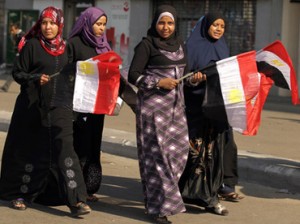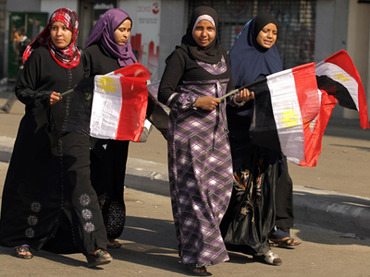
The National Council for Women (NCW) has condemned the removal of women from high profile posts in Egypt’s governorates.
In a statement released Thursday, director of the NCW’s press office, Abeer Abul Ella, condemned the sacking of Ahlam Abdel Aal, secretary of the deputy Ismailia governor, Salwa Al-Ashiri, head of a local government office in a city named Santa, in the Gharbeya governorate and Aziza Mahmoud, who holds a leading post in a monastery in the Qaliubiya governorate.
“There’s also likelihood Zeinab Ahmed, Ministry of Endowments deputy, will be removed from her post,” Abul Ella said.
Abul Ella said the NCW’s own lawyers found there was no viable reason for these three to be removed; they had neither managerial, financial, nor personal problems which may warrant sacking.
“They’re just arbitrary measures, demonstrating the belief that women are incapable of holding high profile jobs, under the claim that it’s religiously prohibited for women to lead men,” Abul Ella said. She claimed such acts were further proof that no true gender equality is being practiced in Egypt.
In a press conference held at the NCW on Saturday, head of the NCW, Mervat Al-Tellawi, stated two female Ministry of Endowments deputies were also removed from their posts alongside four female heads of districts, villages and cities.
“This is all an abuse of the Islamic religion,” Al-Tellawi said, “those who do such acts offend Islam and [Islamic law] Shari’a. Saying that gender equality is against Islamic Sharia is untrue.”
The NCW is organising a protest in front of the Press Syndicate on Monday to refuse the draft constitution which is being discussed before a referendum.
“Egypt won’t be dragged to backwardness because of 100 constituent assembly members’ wishes,” Al-Tellawi said in the press conference.
Certain articles of the constitution are seen by many women’ groups as a gross violation of human rights and women’s rights. Article 68 preserves gender equality yet adds the controversial clause that this equality will be carried out “within the rulings of Islamic Shari’a law.” This clause, they say, is likely to open the door for personal interpretations of Shari’a, thus allowing the limiting of women’s rights.

